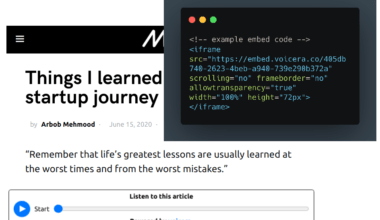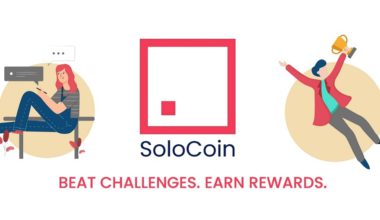Every once in a while, a revolutionary product comes along that changes everything.
The Blockchain is one of the most promising new technologies for the future.
I firmly do believe that Blockchain technology has the potential to fundamentally change much of the way our world currently operates for the better. The world is going to change the way it acts: How financial institutions work?, How organizations conduct business?, or How governments govern? Everything is going to change, all because of Blockchain. It’ll create new ways of working and leave more time for creativity and innovation.
The technology likely to have the greatest impact on the next few decades has arrived. And it’s not social media.It’s not big data. It’s not robotics. It’s not even AI. You’ll be surprised to learn that it’s the underlying technology of digital currencies like Bitcoin. It’s called the Blockchain.
— Don Tapscott
It’s a distributed ledger technology that underlies cryptocurrencies like Bitcoin and provides a way to record and transfer data that is transparent, safe, auditable and resistant to outages.
Blockchain technology has been designed to provide a layer of trust over the internet. This layer of trust is not only enabling many possibilities for different industries but also enhancing their performance by adding fundamentally new capabilities.
The Blockchain has the ability to make the organizations that use it transparent, democratic, decentralized, efficient and secure.
The Blockchain is likely to disrupt many Industries in the coming five to ten years. These are some of the industries it’s already disrupting.
1. Banking and Payments
Some people say that the Blockchain will do to banking what the internet did to media. Blockchain technology can be used to give access to financial services to billions of people around the world including those in countries who don’t have access to traditional banking. Technologies like Bitcoin allow anyone to send money across borders almost instantly in very low fees.
2. Cybersecurity
Although the Blockchain ledger is public, the data is verified and encrypted using advanced cryptography. This way the data is less prone to being hacked or changed without authorization. The Blockchain eliminates the need for middlemen making it more efficient than many legacy systems in cyber security.
3. Supply Chain Management
With Blockchain technology, transactions can be documented in a permanent decentralized record and monitored securely and transparently. This can greatly reduce time delays and human mistakes. It can also be used to ––monitor costs labour and even waste in emissions at every point in the supply chain. This has serious implications for understanding and controlling the real environmental impact of products. The Blockchain can also be used to verify the authenticity or fair trade status of products by tracking them from their origin. Some Blockchain start-ups working in this sector are Providence, Fluent, SKU chain and Block Verify.
4. Forecasting
The blockchain is set to change the entire approach to research consulting analysis and forecasting. Online platforms like Augur are looking to create global decentralized prediction markets. These technologies can be used to place and monitor bets on anything from sports to stocks to elections in a decentralized way.
5. Networking and Internet of Things
Samsung and IBM are using Blockchain technology for new concepts called Adept which will create a decentralized network of IOT devices operating like a public ledger for a large number of devices. It would eliminate the need for a central location to handle communications between them. The devices would be able to communicate to each other directly to update software, manage bugs and monitor energy usage.
6. Insurance
The global insurance market is based on trust management. The blockchain is a new way of managing trust and can be used to verify many types of data in insurance contracts like the insured person’s identity so-called Oracles can be used to integrate real world data with Blockchain smart contracts. This technology is very useful for any types of insurance that rely on real-world data, for example, crop insurance. Eternities, one Blockchain project that is building tools that are useful in the insurance industry.
7. Private transport and Ridesharing
The Blockchain can be used to create decentralized versions of peer-to-peer ridesharing apps allowing both car owners and users to arrange terms and conditions in a secure way with of third party providers. Startups working in this area include Arcade City and la ‘zooz. Use of built-in e-wallet can allow car owners to automatically pay for parking highway tolls and electricity top-ups to the vehicle. UBS, ZF and Innogy are some of the startups developing Blockchain-based e-wallets.
8. Cloud storage
Data on a centralized server is inherently vulnerable to hacking data loss or human error. Blockchain technology allows cloud storage to be more secure and robust against attack. Storj is one example of a cloud storage network using Blockchain technology.
9. Charity
Common complaints in charity space include inefficiency and corruption which prevent money from reaching those who are meant to have it. Using Blockchain technology to track donations can let you be sure that your money is going to end up in the right hands. Bitcoin-based charities like Bitgive foundation use Blockchain secured and transparent distributed ledger to let donors see that the intended party has received the funds.
10. Voting
Probably one of the most important areas of society that Blockchain will disrupt is voting. The US election is not the first time certain parties were accused of rigging election results. Blockchain technology can be used for voter registration and identity verification and electronic vote counting to ensure that only legitimate votes are counted and no votes are changed or removed creating an immutable publicly viewable ledger of recorded votes. It would be a massive step forward in making elections more fair and democratic. Democracy earth and follow my vote are two start-ups aiming to disrupt democracy itself by creating Blockchain-based online voting systems for the government.
11. Government
Government systems are often slow and opaque and prone to corruption. Implementing Blockchain-based systems can significantly reduce bureaucracy and increase security efficiency and transparency of government. Dubai, for example, is aiming to put all its government documents on the Blockchain by 2020.
12. Public Benefits
The public benefits system is another sector that suffers from slowness and bureaucracy. Blockchain technology can help assess verify and distribute welfare or unemployment benefits in a much more streamlined and secure way. Govcoin is a UK based company that is helping the government to distribute public benefits using Blockchain technology. The Blockchain is also a good contender for implementing a basic income. Circles is a project working on developing a Blockchain-based technology for implementing a universal basic income.
13. Healthcare
Another industry that relies on so many legacy systems and is ripe for disruption is healthcare. One of the challenges hospitals face is the lack of a secure platform to store and share data. They are also often victims of hacking because of outdated infrastructure. Blockchain technology can allow hospitals to safely store data like medical records and share with the authorized professionals or patients. This will improve data security and can even help improved accuracy and speed of diagnosis. Gem and Tierion is two startups that are working on disrupting the current healthcare data space.
14. Energy management
Energy management has been a highly centralized industry for a long time. Energy producers and users cannot buy directly from each other and have to go through the public grid or trusted private intermediary. Transactive grid is a start-up using the etherium Blockchain that allows customers to buy and sell energy directly from each other in a peer-to-peer way.
15. Online music
Several Blockchain start-ups are coming up with ways for musicians to get paid directly from their fans without giving up large percentages of sales platforms or record companies. Smart-contracts can also be used to automatically solve licensing issues and better catalogue songs with respective creators. Mycelia and ujomusic are two start-ups creating Blockchain-based solutions in the music industry.
16. Retail
When you shop you trust the retail system of the store or the marketplace. Decentralized Blockchain-based retail utilities work differently. They connect buyers and sellers without middlemen and associated fees. Sorry, Amazon. In these cases, trust comes from smart contract systems. The security of exchanges and built-in reputation management systems. Two startups disrupting the retail space are openbazar and ob1.
17. Real estate
Some of the issues in buying and selling real estate are bureaucracy, lack of Transparency, fraud, and mistakes in public records. Using Blockchain technology can speed up transactions by reducing the need for paper-based record keeping. It can also help with tracking verifying ownership ensuring the accuracy of documents and transferring property deeds. Ubiquity is a Blockchain secured platform for real estate recordkeeping that is an alternative to legacy paper-based systems.
18. Crowdfunding
Crowdfunding has become a popular method of fundraising for new startups and projects in recent years. Crowdfunding platforms exist to create trust between project creators and supporters but they also charge high fees. In Blockchain-based crowdfunding, trust is created through smart contracts and online reputation systems which removes the need for a middleman. New projects can raise funds by releasing their own tokens that represent value and can later be exchanged for products services or cash. Many Blockchain projects have now raised millions of dollars through such token sales. Although it’s still early days and the regulatory future of Blockchain-based crowdfunding is uncertain. It’s an area that holds a lot of promises
19. Your industry
If your industry deals with data or transactions of any kind it’s likely a field that can be disrupted by Blockchain technology. Space is wide open and the opportunities are many.
Hope you guys will not just think of revolutionizing the world using Blockchain Technology but will also do something about it.
Peace!!✌
References:


